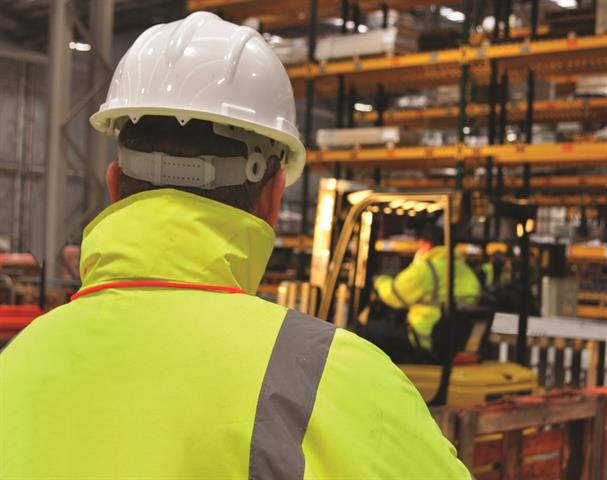 Stuart TaylorStuart Taylor is Managing Director of Mentor FLT Training Limited, the UK’s leading provider of training and associated services for all types of materials handling equipment and workplace transport.
Stuart TaylorStuart Taylor is Managing Director of Mentor FLT Training Limited, the UK’s leading provider of training and associated services for all types of materials handling equipment and workplace transport.
Safety is an ongoing process. It’s important that all the necessary policies and training schedules are in place, but, once implemented, it’s vital that you don’t stop there. Any initial good work can soon be undone without a plan to ensure good practice continues over the long term.
As well as a lack of training, the HSE attribute many accidents involving forklifts in the UK to poor supervision. Routine monitoring ensures that operators continue to work safely, in the way they were taught, and keep bad practice at bay. However, in a recent study, over 50% of UK businesses we surveyed said they did not carry out regular assessments/monitoring on their operators’ ability in between refreshers, unless prompted by a concern raised.
A reactive approach to safety is dangerous and far more costly, to your people and your business, than taking simple preventative measures. Proactive monitoring, on the other hand, ensures that complacency and bad habits are not allowed to take root, massively reducing the risk of accidents and injuries on site.
The question is, do those responsible have the time, inclination and the understanding to effectively oversee operating practice? Here, we explore four methods that managers and supervisors can use to help them monitor successfully and reap the practical and financial benefits of a safer workplace.
1. Walk the floor
The physical presence of a manager or supervisor has multiple benefits in terms of bolstering operational safety. It’s important to see what’s going on for yourself and to build communication with your team so that conversations around safety can be had. But your presence also demonstrates that safety is a priority within the business and that you are there to hold people accountable should it not be upheld. Make time to carry this out in person and use technology to assist (not replace) physical reviews, where possible.
In the UK, although managers don’t need to be certified forklift operators themselves, they must be able to recognise and rectify bad practice amongst their team. Overloading, speeding, pedestrians in unauthorised areas, poor observations and lack of seatbelt use are just a few examples of behaviours that can, and must, be stopped before they contribute towards an accident.
Not only is it important to observe operating practice but, also, who is carrying it out. Only employees that have been properly trained and authorised to use equipment should be able to access MHE on site for the safety of themselves and those working around them.
 A reactive approach to safety is dangerous and costly
A reactive approach to safety is dangerous and costly
2. Make it part of your KPIs
Aspects of monitoring often form part of the established Key Performance Indicators (KPIs) for a business or individual. For example, while operators must fill in daily pre-use check documents which will highlight any truck faults or damage, it is then the supervisor’s responsibility to review and verify that these have been completed, to ensure this KPI is being met. Think about the monitoring activities that need to be done on your site to ensure you meet your targets.
3. Get the most out of your truck data
Some larger operations utilise fleet management software systems which are fitted to all trucks to track usage data such as operational hours, operator ID, speed, and sudden impacts. With a wealth of telematics data available, analysing key metrics allows managers to supplement their own physical supervision with additional valuable insight into operator behaviour around the clock. Having the information in this format also makes it easier to spot trends and anomalies, and then address any areas of concern.
4. Have multiple eyes on operations
CCTV can be a very helpful tool to assist in monitoring operating standards, as no one person can be physically across all operational areas, all of the time. To make the most of this function, be sure to use it proactively as an insight into operational behaviour, not just after an accident occurs. As per the telematics data, it can clearly highlight unsafe practice so that it can be addressed before it causes a problem. Look out for any complacency and corner-cutting and nip it in the bud.
Supporting managers
Backing up your policies, procedures and training with regular supervision massively reduces risk and is a big step towards a safer workplace for all. As we’ve seen, a physical presence is key but there are plenty of additional methods you can use to help you, which provide further insight and allow you to build up a more comprehensive picture of operational safety on your site/s.
With a proactive approach, you can identify any additional training needs and prevent accidents from happening in the first place, rather than stopping them from happening again after it’s too late.
For further guidance on operator monitoring and other key supervisory responsibilities, there are specialist accredited training courses available for managers and supervisors which provide all the relevant skills and knowledge needed.